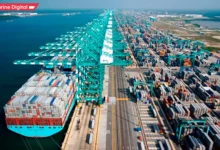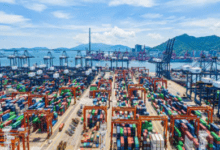
Problems and Prospects of Industrialization in Nigeria
The importance of industrialization to the economic development of any country cannot be overemphasized. In fact, the relationship between the two variables is a direct one. From industrialization to economic growth. Thus, almost all economically developed countries are industrialized.
Industrialization is the process of transforming an extraction based economy into a manufacturing based economy.
👉 Relocate to Canada Today!
Live, Study and Work in Canada. No Payment is Required! Hurry Now click here to Apply >> Immigrate to CanadaBy extractive based, I mean an economy that relies on the extraction and exportation of primary products (raw materials). Like farming, fishing, mining and so on.
While the industrialized nations relies on the transformation of these raw materials into finished goods for domestic use and export.
PROBLEMS OF INDUSTRIALIZATION IN NIGERIA
The term “industrialization” emanated from the industrial revolution of 18th and 19th century in Europe. This revolution saw machines replacing human efforts in the production process. And the end product is mass production.
In Nigeria, efforts to industrialize the country began after independence with the first national development plan.
The first national development plan(1962 – 1968) focused mainly on import substitution as a means of strengthening the Nigerian manufacturing sector.
Other focus of the policy were; increased participation of Nigerians in control of the economy, expanding the technological base of the country to support industrialization and so on.
Ever since then, the Nigerian government has embarked on numerous economic and industrialization policies. With the most recent being the Vision 20:2020.
👉 Relocate to Canada Today!
Live, Study and Work in Canada. No Payment is Required! Hurry Now click here to Apply >> Immigrate to CanadaHowever, despite all these efforts by the government to revamp the economy. And place it on the part of development, Nigeria remains largely under developed and industrialized.
To this end, we shall look at the following factors militating against industrialization in Nigeria:
• LACK OF CREDIT/ACCESS TO CREDIT: This remains the major hindrance to industrialization in Nigeria. This problem is caused by the industrialists themselves, the government and financial institutions.
Most industrialists in Nigeria are unwillingly to share the ownership and control of their establishments with other investors so as to accumulate enough finance to run their business.
This leaves them most companies with little capital to run the business. Hence, limiting their growth.
Also, the stiff requirements and interest on loan of most lending houses in Nigeria coupled with government negligence discourage industrialists from borrowing. And stifles industrialization in the country.
• OVER DEPENDENCE ON FOREIGN MACHINES : Most of the technology and machines used by local manufacturers in Nigeria are imported from other countries. And this machines are usually very expensive.
This hinders potential industrialists from venturing into production.
• INADEQUATE RAW MATERIAL: Due to the poor state of our agricultural sector. The amount of raw materials produced by the sctor for the manufacturing sector is not enough to support massive industrial production. Thus, the manufacturers depend largely on foreign raw materials for production. This hinders industrialization in the country.
• PRODUCTION OF SUB-STANDARD GOODS: Most of the products made in Nigeria are usually substandard. This has decreased the reliance of the masses on locally made goods. Hence, dependence on foreign goods for their satisfaction.
• ILLITERACY/INADEQUATE SKILLED MANPOWER: The illiteracy rate in the country is very high. This problem is worsened by the lack of adequate technical education in our secondary schools and universities. Thus, skilled manpower required for high industrial growth is grossly inadequate in Nigeria.
• LACK OF BASIC INFRASTRUCTURES: This has always being the major obstacle to development. And industrialization in Nigeria. The country lack facilities like good roads, water and rail transport facilities, communication facilities. And most importantly electricity supply. This hinders the progress of the industrial sector. And discourage potential industrialists.
. POLITICAL INSTABILITY AND MILITANCY: Frequent changes in government policies and incessant insurgencies have been a bane to industrialization and development in Nigeria. The Niger delta militants and of recent the Boko Haram group has continuously hindered economic activities in the country. And even discouraged local and foreign investors from investing in Nigeria.
Read Also: 5 Ways to Improve Insurance Penetration in Nigeria
SOLUTIONS TO THE PROBLEMS
Having identified the problems. That is the factors smouldering industrialization in Nigeria, the next step is to proffer solutions to the problems.
Given the factors mentioned above, the solutions may include:
• IMPROVED ACCESS TO CREDIT: The Nigerian government should put in place measures to ensure that local industrialists have easy access to credit. These credits granted to the manufacturers should also bear low interest rates. So as to encourage them to borrow. Government can achieve these by Empowering the industrial developnent banks financially. As well as encouraging private financial institutions to do so.
• ENCOURAGE LOCAL MANUFACTURE OF INDUSTRIAL MACHINES: The government should also encourage and support local engineering firms to venture into the manufacturing of some of the heavy industrial machines imported from abroad.
• IMPROVED EDUCATION SYSTEM/MANPOWER TRAINING: The government should work towards improving our educational system. Technical courses should be introduced into the secondary and university curriculum. With more emphasis on practical than theories. Government can also adopt the Chinese strategy of sponsoring eligible students to go to more technologically advanced countries to acquire technical knowlege that would be invaluable to the country.
• IMPROVED AGRICULTURAL SECTOR: The government should pursue policies geared towards improving the agricultural sector. When this is achieved, the sector can then guarantee enough raw materials for industrial production. This could be achieved through agricultural mechanizationn.
SEE ALSO: PROBLEMS AND PROSPECTS OF AGRICULTURAL MECHANIZATION IN NIGERIA.
• FAVOURABLE GOVERNMENT POLICIES: Government should also pursue policies favourable to industrialization in Nigeria. For instance, tax holidays, excise duty reduction and tarrif protection. And even granting special loans to encourage export of locally made goods.
• PROVISION OF BASIC INFRASTRUCTURES: The government should provide adequate infrastructure like electricity, good road network, rail and water transport facilities, improved communication infrastructures and so on. All these would facilitate the production and movement of goods within and outside the country.
• POLITICAL STABILITY/SSCURITY: Government should minimize the constant change of economic policies.
Also, adequate measures should be employed to tackle the security problems in various regions of the country. Especially, the Boko Haram insurgence in the North.
BENEFITS OF INDUSTRIALIZATION in NIGERIA
The attainment of industrialized status is the aim of any country seeking to develop in the world.
This is because industrialization comes with numerous benefits to any country that attains such status.
Below are some of the benefits Nigeria would enjoy from being industrialized:
• EMPLOYMENT GENERATION: Industrialization encourages mass production of goods. This require more labour to achieve.
And so would lead to employment of capable hands in the production process.
Also, as the country industrialize, more people would be employed to keep up with the production rate.
• IMPROVED LIVING STANDARD/POVERTY REDUCTION: As employment is generated, the number of unemployed reduces. This goes to reduce poverty in the country. Also, increased industrial output means that the masses now have variety of goods to choose from at affordable prices. This equally goes to improve the living standards of the populace.
• IMPROVED BOP/ECONOMIC GROWTH: Industrialization leads massive production of goods. Some of these goods may not be needed for local consumption. Thus, they are exported . This generates foreign exchange for the country, improves rhe countries balance of payment(BOP) and ultimately stimulate economic growth. Also, it leads to the conservation of foreign exchange. Because funds that would have been used to purchase foreign gods are reserved. Since such goods are made locally.
• STIMULATION OF OTHER SECTORS: The growth of the industrial sector would also stimulate the growth of other sectors. For instance, the growth of the industrial sector would create a ready market for agricultural producers who supply raw materials.
• DEVELOPMENT OF SKILLED MANPOWER: As a country industrialize, more people are trained in different managerial technical areas to acquire knowledge needed in managing the firms and machines. This improves the knowledge base of the country.
Read Also: 5 Biggest Business Challenges Facing Nigerian Startups Revealed
THANKS FOR CHECKING OUT THIS POST.
LEAVE YOUR COMMENTS, CONTRIBUTIONS AND QUESTIONS.
AND DON’T FORGET TO SHARE THIS POST.
FOR FURTHER READING CHECK OUT THE REFERENCES BELOW.
REFERENCES
Adebayo, B.W. (2004). “Industrial Development in Nigeria”. CBN Publication, Vol. 30 N0. (15).
Adejugbe, O. (1980). Research Methods in Administration Sciences: Monographic UNIPORT Press.
Adenikinju, A. (2005). “Sap and the Production Efficiency in the Manufacturing Sector”: CBN Publication.
Aigbokan, B. (1999). Macro Economic Theory Policy and Evidence: Ekpoma University Press.
Ajakanje, D. (2002). Practices of Banking, Collins Academic and Professional Test, Lagos Nigeria: F and A Publishers.
Akinkugbe, (1988) “Journal of Economics and Financial Studies” Akoko Ondo state, Nigeria.
Anyanwu, J.C. (1977). “The Structure of the Nigerian Economy.
Ekpo, A.H. (2009) “Foreign Direct Investment in Nigeria: Evidence from Time Series Data” Economic and Financial Review vol. 35.
Koutsoyiannis, A. (2003). “Theory of Econometrics. 2nd edition, Singapore:” Mc Graw Hill Booking Company.
Szirmai, A. (2008). “Productivity Growth and Structural Change in Nigerian Manufacturing Industries”. Corporate Publication. Pp. (841-874).








Thanks. This has really helpful to me.
Thank you
I found this very useful
Good points.
Thank you,i found this very useful
Good points.
Extremely comprehensive.. Thank You very much..